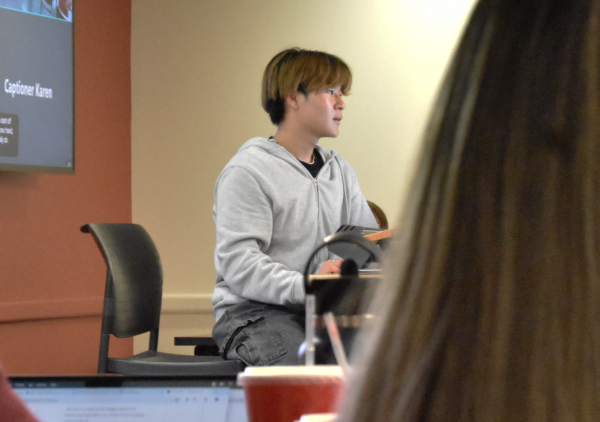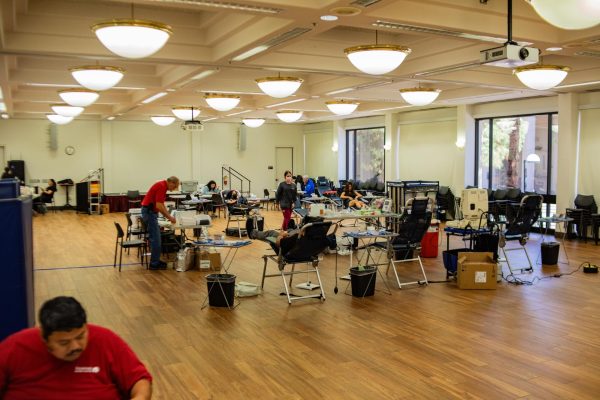Sleep: It’s a Big Deal
October 8, 2016
Healthy sleep habits should be a priority for students
who find themselves drifting off or failing to pay
attention during class. The Center for Disease Control
has found one in three U.S. adults typically sleep less
than seven hours a night. However, the quantity and
quality of sleep have a profound impact on learning
and memory.
According to De Anza’s National College Health
Assessment Survey, 40 percent of students surveyed
“felt tired, dragged out, or sleepy during the day,” and 41
percent reported not “getting enough sleep to feel rested”
three to five days a week.
Sleep allows the brain and central nervous system
to function properly. Chronic or low quality sleep is
associated with moodiness, and many serious health
problems – diabetes, obesity, depression, hypertension,
impaired immunity and cognitive functioning.
Tips for healthy sleep habits:
• Limit alcohol – consumed in excess, alcohol helps
you fall asleep quickly and deepens sleep initially,
but later it disrupts sleep and causes middle-of-the night
wake ups. Overall, it produces unsettled sleep
and alters sleep phases, including reduced REM
sleep.
• Skip coffee breaks in late afternoon/evening.
• Avoid nicotine – like caffeine, it is a stimulate.
• Reduce noise – use earplugs, which are available
free in Health Services, or a white noise machine.
• Be cool & dark – darkening window shades, sleep
mask, and comfy, cool bedding result in a conducive
sleep environment.
• Keep a consistent sleep routine.
• Avoid big meals two to three hours before bedtime.
• Limit water/fluid intake in the evening.
• Keep naps short and early; they should be less than
30 minutes and before 3 p.m.
• Practice relaxing soothing behavior 30 to 45 minutes
before bed. Listen to calming music, try meditating
or gently stretch. Identify your stressors and worries.
For help, students can make an appointment with De
Anza’s psych services.
• Exercise regularly, but not strenuously, just before
bed. Try to get out in the sunshine before noon each
day for 30 minutes to set your body clock. Even just
walking helps.
• Limit screen time 1 hour before bed.
• Reserve bed space for sleep (and sex) – not studying
or work. Condition your body so that bed space is
associated with sleep.
Before taking nonprescription sleep aids, consider
seeking medical advice at the Health Services or with a
doctor. Use caution with nonprescription sleep aids such
as Sominex and Unisom, which contain antihistamine, a
drug which causes drowsiness and impairs driving ability
the next day. They interfere with the neurotransmitter
acetylcholine, causing memory problems, and confusion.
Tolerance (the need to take larger amounts to get the
same effect) to these sleep aids can develop quickly, so
don’t take them for more than a few nights in a row.
Nighttime pain relievers such as Tylenol PM and
Advil PM and cold remedies such as Nyquil also contain
such antihistamines to promote drowsiness. If all that is
needed is pain relief at night, just take acetaminophen
such as Tylenol or ibuprofen such as Advil and Motrin.
These drugs are available at Health Services. And if
you simply need temporary help sleeping, skip the pain
reliever and just take the antihistamine itself, Benadryl.
Mary Sullivan is the Director of Health Education and
Wellness, and can be reached at 408-864-8733 or at her
email, [email protected].




























